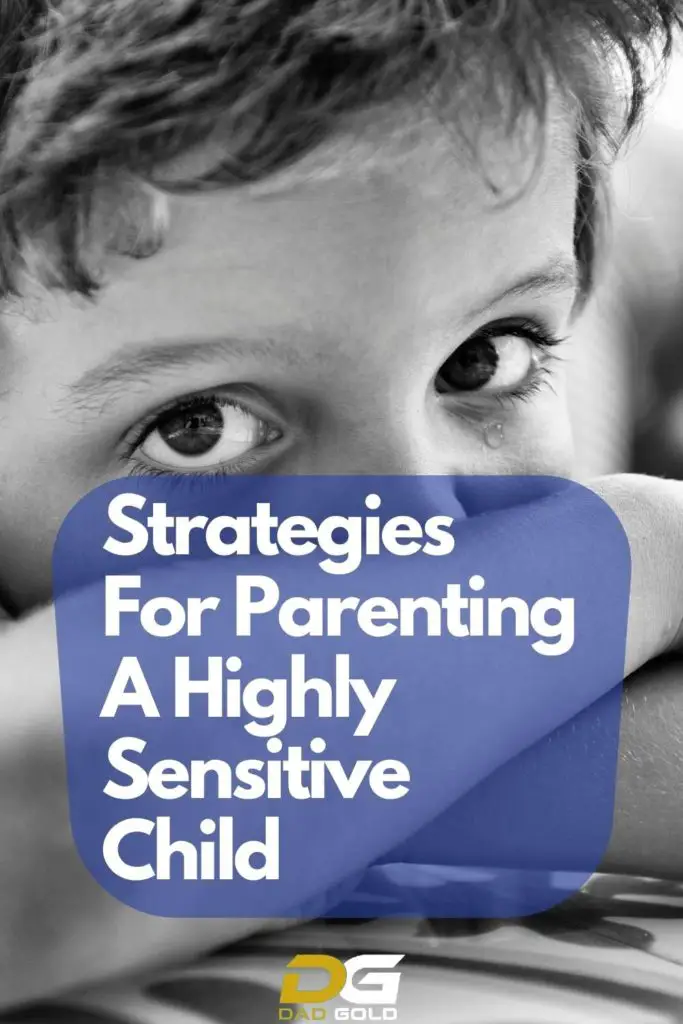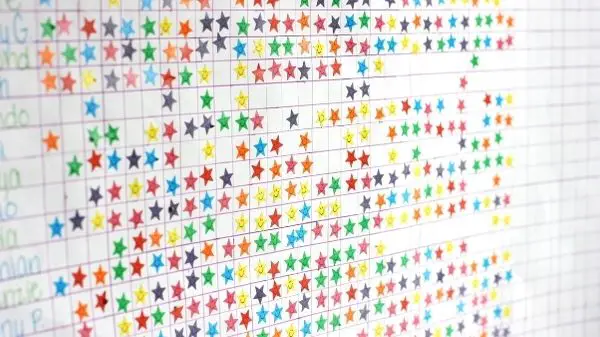Does your child cry a lot over everything?
Do they prefer playing by themselves instead of with other kids?
Are they labeled as ‘shy,’ ‘introvert,’ or ‘quiet’ by people?
Do they seem to take everything personally?
If you’ve said yes to most of the above, you probably raise a highly sensitive child.
Emotional hypersensitivity (also called Sensory Processing Sensitivity) in children is NOT a disorder. It’s just a temperament style that can be found in 15-20% of the population. But, how do you know for sure if your child is sensitive, and more importantly, how do you raise an overly sensitive child?
Keep reading. I’m going to answer all your questions so that you can support them while they empower themselves to appreciate their sensitivity instead of trying to become someone else.
Just a small reminder: There’s nothing ‘wrong’ with your child, and they don’t need to be ‘fixed.’
-

Bold Male Pride – Baseball Trucker Cap Celebrating Masculinity
£18.00 Select options This product has multiple variants. The options may be chosen on the product page -

Dad Bod Appreciation Gift Mug
£14.00 Add to cart -

Dad Bod, Bad Jokes Structured Baseball Cap
£22.00 Select options This product has multiple variants. The options may be chosen on the product page

How do you know if you have a highly sensitive child?
Your child shouldn’t be considered a highly sensitive one just because they seem to cry uncontrollably. According to Focus on The Family Canada, if a child doesn’t show all of the following personality traits, they aren’t highly sensitive.
Let’s have a look, shall we?
Intense Emotional Reactions
A highly sensitive child will display extreme emotional reactions of fear, pain, anxiety, anger, sadness, and shame.
So, if your 5-year-old child’s feelings get hurt over everything, and he won’t stop crying over seemingly small things, it’s because he’s a highly sensitive child who gets overwhelmed easily.
Deeply Processes Experiences
Highly sensitive kids feel things deeply. They soak in virtually everything that happens around them. That’s why it’s hard for them to let things go.
They tend to be inquisitive and will ask you lots of well-thought-out questions.
Highly Empathetic
Highly sensitive children tend to be highly aware and attuned to their emotions and others’. They might rush to comfort others when they see someone is upset or in pain.
They possess a keen sense of righteousness and treat others with genuine kindness.
Easily Overstimulated
These kids have a sensitive nervous system and may experience sensory meltdowns if they’re overstimulated.
Hectic schedules, noisy and smelly places, or loud noises can cause sensory overload and send sensitive kids into a tailspin.
Sensitive to Subtle Stimuli
A sensitive child is highly aware of the subtleties of their surroundings. They’re sensitive to loud noises, bright light, scents that others barely detect, and rough-textured fabrics.
They may want to pull out all the tags from their clothes and avoid wearing tight-fitting clothes.
Highly sensitive kids may exhibit some or all of these signs as well:
- usually like to play alone instead of playing with other kids
- more often than not are ‘introverts'(a whopping 70% of them)
- aren’t a fan of changes. They struggle to cope with a new environment, such as getting into a new school, adjusting to new classmates and teachers
- may experience night terrors
- need a lot of downtimes
- highly intuitive and can read others’ expressions, feelings, and body language
- have a wide range of food allergies
- beat themselves up if they’re criticized or rejected
- take everything personally and struggle with letting things slide
- have strong observational skills
- tend to be passionate about nature and wildlife
People often confuse HSP with autism. Even though there are similarities between the signs of the two traits, they’re entirely different in many ways.
Parenting Strategies for Highly Sensitive Children

As a parent, your goal is to teach your emotionally sensitive child how to deal with their emotions and build healthy coping skills so that they can grow up as strong, independent, and responsible adults.
Let’s see how you can help them do that.
Accept Them as They Are
Remember that highly sensitive children didn’t choose to be like that. High sensitivity is an innate trait. Please don’t make them suppress their emotions.
Don’t tell them to learn how to grow thick skin. Let them embrace their temperament and make the best of it.
Help Them Verbalize Their Emotions
Teach them to name their big feelings. Highly sensitive children experience intense emotions that make them feel overwhelmed.
Talk to them and help them open up so that you can walk them through it. Train them to cope with those powerful emotions.
Validate Their Feelings
Acknowledge and validate their feelings instead of being dismissive.
You may not understand their emotions or why they feel everything so intensely. Well, you don’t have to.
All they need to know is that you don’t think they’re ‘abnormal’ for being a highly sensitive child.
Avoid Sensory Overload
Highly sensitive kids get overstimulated when a lot is going on in their life.
It’s not a good idea to force them to engage in social interaction when they don’t feel like it. Also, it would be best if you gave them enough downtime to rewind after a long day at school.
Be There For Your Child
A sensitive child may need your validation and reassurance more often than their less sensitive siblings. Spend one-on-one time with them and hug them more often.
Learn what ticks them off. Is it bright lights? Loud noises? Crowd? Spot the triggers and help your child manage them effectively.
Teach Them Calming Strategies
Let them design a ‘peace corner’ with their favorite toys, books, and music.
Whenever they feel drained or overwhelmed, they can go there and do things that help them feel relaxed.
Give them a creative outlet and create a relaxing environment at home for them.
Here are a few strategies that might help them calm down:
- counting to 10
- going for a run around the block
- spending time in nature
- playing with their pet
- reading a book
- listening to soothing music
- drawing, painting, or building something.
Prepare Them for Big Changes
Highly sensitive children don’t like surprises or any sudden changes. They need time to process things. That’s why as parents, you need to make sure you prepare them well for any upcoming changes such as moving to a new house or having another baby.
Give them enough time to adjust to major life changes.
You should also:
- help them see their sensitivity as a strength
- focus on the positives of being a sensitive person
- try to answer all their questions and encourage their passion for learning
- let them spend enough time in nature
- teach them problem-solving skills to give their confidence a boost
- praise them for being brave and tell them you’re proud of them
- be their biggest fan and keep cheering them on their wins, however small they may be
- Don’t compare them with their siblings or other kids
- Discipline them gently.
How do you Discipline a highly sensitive child?

Discipline is crucial for sensitive kids to learn how to control their emotions and cope well in the outside world. But, you don’t want to be harsh with your sensitive child.
Instead, adopt a kinder and gentler approach so that you don’t end up crushing their spirits.
Discipline Without Criticism and Shame
Highly sensitive children hold themselves to a high standard and tend to be perfectionists. They’re very sensitive to criticism.
Instead of getting angry when they make a mistake, give them positively worded feedback to understand how they can avoid it the next time.
Make A Daily Schedule and Stick to It
Highly sensitive kids don’t like change. They need a predictable daily schedule and a structured environment to thrive.
A fixed routine gives children a sense of control and is a very effective method of discipline. Make sure you don’t change the schedule unless it’s necessary.
Don’t Bend The Rules For Them.
You want your sensitive child to learn responsible behavior and self-control. For that to happen, you need to be consistent, set limits, and follow through.
Please don’t give in to their whims to avoid a meltdown. Be gentle but make sure they know the rules are non-negotiable.
Teach Them the Importance of Consequences
Give your sensitive child consequences for breaking the rules. Let them know that you’ll follow through, and they can’t escape it.
Ensure that they know the consequences are resulting from their poor behavior, which they can avoid if they follow the rules.
Don’t use time-out as a consequence with highly sensitive kids as it might make them feel abandoned. Also, give appropriate consequences that won’t be too hard on your highly sensitive child.
Set up a Reward System

Emotionally sensitive children respond well to incentives. Give them rewards for following rules and managing their emotions well.
The reward can be tangible like a toy or intangible like a compliment.
However, you should make them work for the reward instead of just handing it to them.
Conclusion
Raising a highly sensitive son or daughter comes with its challenges.
But, as long as you keep focusing on how incredibly talented and compassionate your sensitive child is and what they’re capable of achieving, you can successfully co-create innovative solutions to help them unlock their full potential.
Good luck!
Reference






